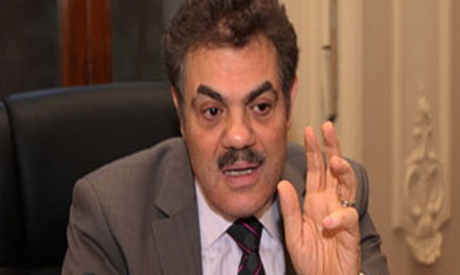
Al-Wafd Party president El-Sayed El-Badawy (Photo:Ahram)
Egypt's oldest liberal party, Al-Wafd, will attempt to garner a majority in the upcoming parliamentary elections, party president Al-Sayed Al-Badawi has said in interview with Al-Ahram daily newspaper.
Despite this intention, Al-Badawi criticised the elections law issued in June, weeks before former army chief Abdel-Fattah El-Sisi was inaugurated president, saying the law would prevent the formation of a parliamentary majority.
Al-Badawi railed against the law due to its lowered share of party list seats versus individual candidacy seats, accusing the authors of the law of having a "security" mentality whereas election laws should be penned by politicians.
Egypt's new House of Representatives law gives party lists 120 out of a total of 480 elected seats. The law was vehemently criticised by a number of prominent political parties.
"The law contradicts the spirit of the constitution," Al-Badawi said. "In the presence of this law there won't be a majority party in parliament and thus no solid bloc the president can deal with." Al-Badawi said this would lead to legislative deadlock and a parliamentary crisis.
Nevertheless, Al-Wafd will contest a majority of seats, via both party lists and through individual candidates.
Al-Wafd has formed a parliamentary alliance that includes the Egyptian Socialist Democratic Party — which fielded ministers in Egypt's first post-30 June 2013 cabinet — and a number of other parties.
Al-Badawi told Al-Ahram the party is open to postponing the elections to 2015 — a move some politicians and political commentators have recently urged — but only if the reason for a postponement is amending the elections law.
There should be more time given for the law to be studied, and discussed in society, before it is implemented, Al-Badawi said.
In accordance with Egypt's 2014 Constitution, procedures for holding parliamentary elections got underway when President El-Sisi tasked the Supreme Elections Commission with preparing the vote. While no official date has been set, political analysts and judicial sources say elections should begin in October.
Parliamentary elections are the third and final stage of a political roadmap instated by the army and political groups opposed to the Muslim Brotherhood after they were ousted from power in July 2013. The first and second stages were amending and putting to referendum a new constitution, and electing a new president.
Short link: